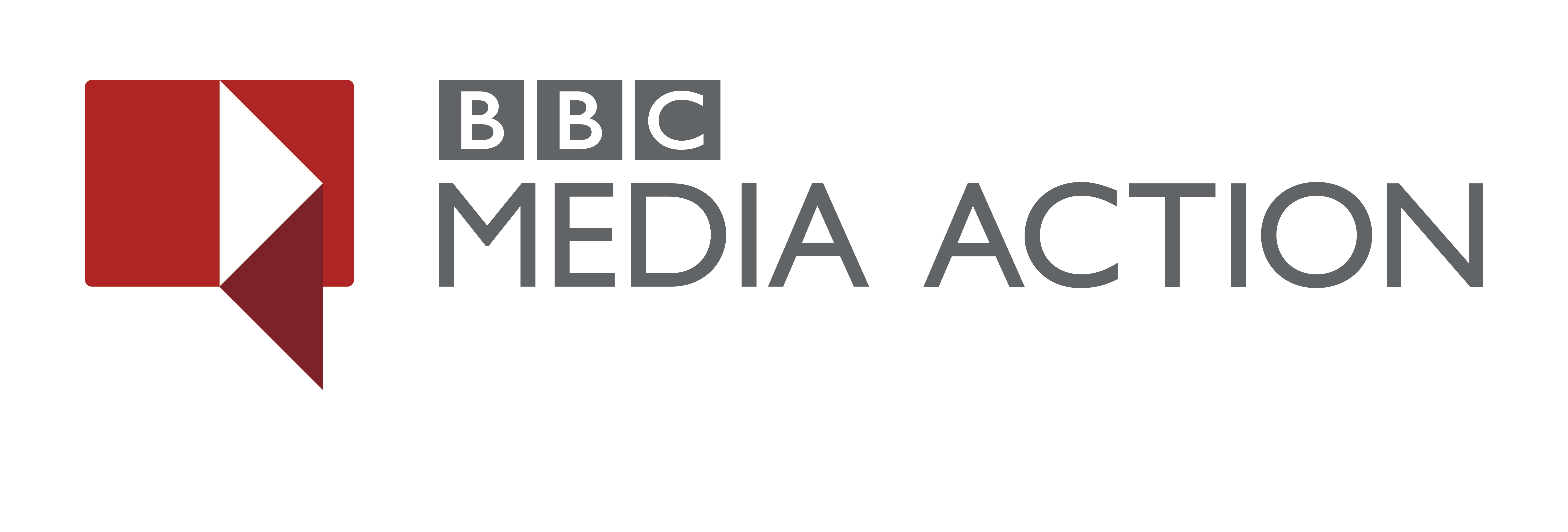Gaza conflict 2014
INTERVENTION
BBC Media Action produced Atheer Gaza (Gaza Lifeline), a practical radio programme to support the humanitarian response to the conflict. The programme was a BBC Media Action production in partnership with BBC Arabic and Gazan radio station Alwan. It was broadcast on BBC Arabic, and on local radio stations Alwan and Gaza FM. Episodes also streamed online through the BBC Arabic website and SoundCloud, with over 45,000 listeners on SoundCloud and 12,000 Facebook “likes” as of January 2015 . A total of 48 programmes were produced, including over 100 audio packages.
PROJECT AIMS
Atheer Gaza aimed to provide daily information to help people cope with some of the problems they faced as a result of the crisis and to give them a chance to voice concerns and share experiences.
Specifically, it aimed to:
• Provide practical, useful information during the crisis
• Encourage people to take action to protect themselves from hazards
• Provide information on the humanitarian services that were available to support them
• Provide psychological support and reassurance via trauma experts and other community members
• Provide ideas and solutions to local problems (for example, how to charge a mobile phone from a car battery
• Give people an opportunity to share their experiences, raise concerns and help to hold authorities and relief providers to account.
RESEARCH AND EVALUATION
Following best practice, BBC Media Action co-ordinated with a UN Office for the Coordination of Humanitarian Affairs working group and the Communicating with Disaster Affected Communities Network on information gathering, using a non-representative sample of 700 people living in damaged areas and shelters.
Research also drew on an inter-agency needs assessment5 to understand priority needs in Gaza and inform programming.
Additional, rapid research was conducted at various times to inform and evaluate the radio programme.6 The audience research was conducted in two waves through phone interviews as it was not easy to interview or recruit listeners using a face-to-face method.
5 The Humanitarian Country Team Advocacy Working group added priority needs communication questions.
6 Listeners who took part in the in-depth listener interviews were not typical of all audience members in the Gaza Strip as they were recruited through phone and Facebook due to limited access in a conflict setting.
KEY FINDINGS
RELEVANCE & APPROPRIATENESS
Access
Platform – During and after this humanitarian emergency, people depended on a range of information sources but radio – often accessed through mobile phones – was key because of electricity shortages. People with access to electricity liked to use the internet to access useful information.
Broadcasting Atheer Gaza both on the radio and online reflected the media channels used by people affected by the conflict and helped the content to reach various audiences.
Content – Research respondents reported finding the show easy to understand and liking the clarity of the presenters. Some suggested that using less formal Arabic could have helped the show to feel even “closer to the people”.
Listeners appreciated the programme’s content, especially the variety of topics, but would have liked more detail on specific issues. They particularly wanted more solution-focused content.
Listeners valued the fact that the programme raised difficult issues, such as immigration and exploitation, and reported discussing these topics with friends and relatives.
Engagement
Listeners liked the fact that Atheer Gaza had its own style, which differentiated it from other programmes, for instance by providing interviews with representatives from humanitarian organisations and contact information for agencies involved in reconstruction.
The show engaged listeners, particularly because it included ordinary people from Gaza and discussed the reality of life on the ground. Some felt that the programme should have reflected more of the very worst situations in Gaza and wanted it to address wider social issues, such as women’s rights.
Listeners liked the show’s use of multiple voices but would have liked to be able to interact more directly with the programme, perhaps via a more interactive Facebook page or phone-ins.
Trust
In general, people in Gaza perceived much of the local media to be biased towards a specific political party. Listeners expressed consistent concerns about the accuracy and trustworthiness of media content, which deteriorated further during the conflict.
Research participants in Gaza felt that few media programmes gave them helpful information about the reality on the ground, but focused mostly on news and political affairs instead. While the international media was perceived as being less biased, it was also seen as less useful at providing locally specific information.
Atheer Gaza was seen as trustworthy because of the perceived neutrality of the BBC brand and the use of a non-partisan radio outlet (Radio Alwan). Listeners liked and trusted the programme’s presenters, but reported that some decision-makers interviewed on the programme were inaccurate. Listeners would have liked the presenters to have held them to account more.
EFFECTIVENESS
Knowledge and learning
Atheer Gaza listeners reported learning new information from the programme, for example how to recognise symptoms of trauma and get help.
Connecting people
The show helped to connect people affected by the conflict to officials by broadcasting their concerns and on the show. Humanitarian workers found the programme valuable as an educational resource and directed people to it.
Motivation and actions
It is clear that people in Gaza liked Atheer Gaza and found it helpful. Their levels of motivation to act were strongly influenced by the conflict and broader political environment . They would have liked the show to include more solution-focused ideas.
| Gaza Lifeline Episode 7: War Injured (Arabic) | 17:56 |
| Gaza Lifeline Episode 13: Disabled (Arabic) | 17:56 |
| Gaza Lifeline Episode 20: Water (Arabic) | 17:56 |
PREVIOUS

